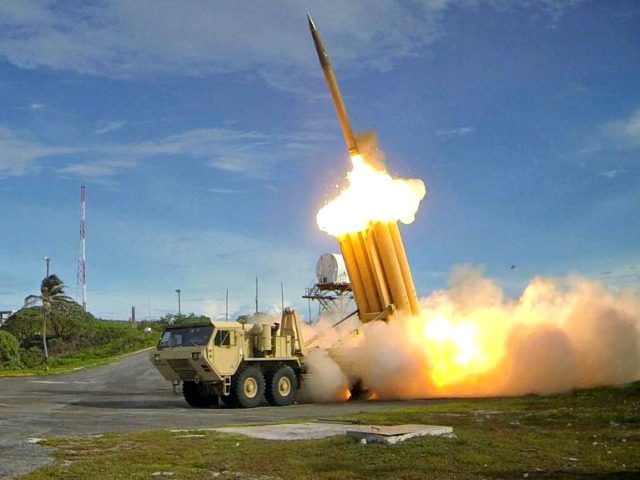The Pentagon plans to hold its first missile intercept test in nearly three years towards the end of May — a sign that the Trump administration is taking Kim Jong-un’s threats of missile attacks against the U.S. seriously, Bloomberg Politics reported.
These missile defense efforts have become more important as North Korea ramps up its ballistic missile development and President Trump vows to keep Kim Jong-un’s regime in check.
The intercept test is the first time the Pentagon has tested the $36 billion ground-based missile defense system in nearly three years, Missile Defense Agency spokesman Christopher Johnson told Bloomberg in an email. The system is managed by Boeing Co.
Johnson added that this missile defense test is contingent on what testing resources are available.
President Donald Trump welcomed Chinese President Xi Jinping to his Mar-a-Lago resort in Florida Thursday, where the two are set to discuss North Korea’s nuclear weapons program among other issues.
Trump has called on China to do more to rein in North Korea, while Beijing has urged the U.S. to abandon its plan to deploy an Army missile system called Thaad in South Korea that is made for intercepting short and medium-range systems.
China has called the system a threat to its sovereignty because it could be used to track its own nuclear program, CNBC reported.
North Korea has held ballistic missile tests several times this year and fired a missile that flew 60 kilometers into the East Sea.
Air Force General John Hyten told a Senate panel this week that “North Korea is not an existential threat,” but he did say the country is “the most dangerous and unpredictable actor in the Pacific region.”
“Pyongyang’s evolving ballistic missile and nuclear weapons program underscore the growing threat,” Hyten said. North Korea is “also pursuing development of Intercontinental Ballistic Missile (ICBM) and Submarine Launched Ballistic Missiles capabilities, and an improved Intermediate Range Ballistic Missile,” Hyten told senators.

COMMENTS
Please let us know if you're having issues with commenting.